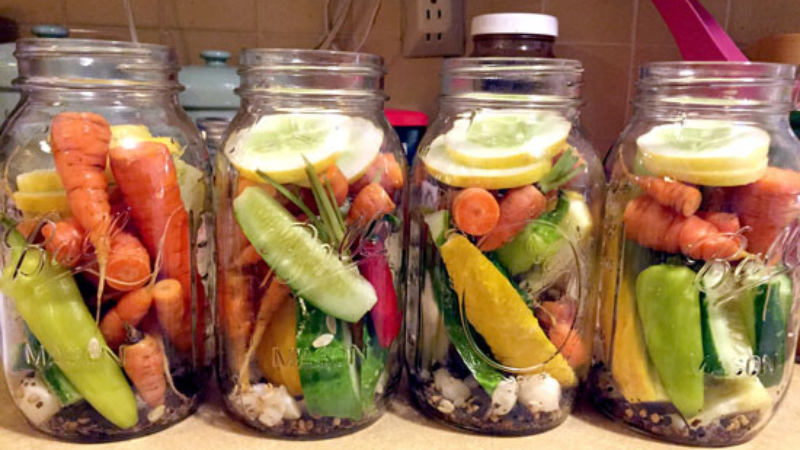How To Can Pickles Without A Canner – Have you ever found yourself in the fortunate situation of having an abundance of fresh, crisp cucumbers and a yearning for the delectable delight that is homemade pickles? Well, here’s the exciting revelation: you don’t require a specialized canner to embark on this culinary adventure. In the upcoming sections of this article, we will be your trusty guides, leading you through the art of canning pickles without the need for any special equipment. From the crucial task of handpicking the finest cucumbers to the meticulous process of safely preserving your pickles, rest assured, we’ve got every aspect of pickle-making covered for you.
So, if you’ve been eyeing those lush cucumbers in your garden or at the local market, and the thought of enjoying your very own pickles has been lingering in your mind, you’re in the right place. This article is your gateway to the world of homemade pickles, and we’ll show you how to unlock that culinary treasure without any unnecessary complications or the need for specialized canning equipment. Let’s get started on this delightful journey towards the perfect homemade pickles.
Table of Contents
ToggleHow To Can Pickles Without A Canner?
For those seeking a canner-free method, this guide provides a simple alternative. By following these steps, you can enjoy homemade pickles without any special equipment.
Also Read:- OLD-TIME COUNTRY STORE PICKLE BARREL PICKLES
Selecting the Right Cucumbers:
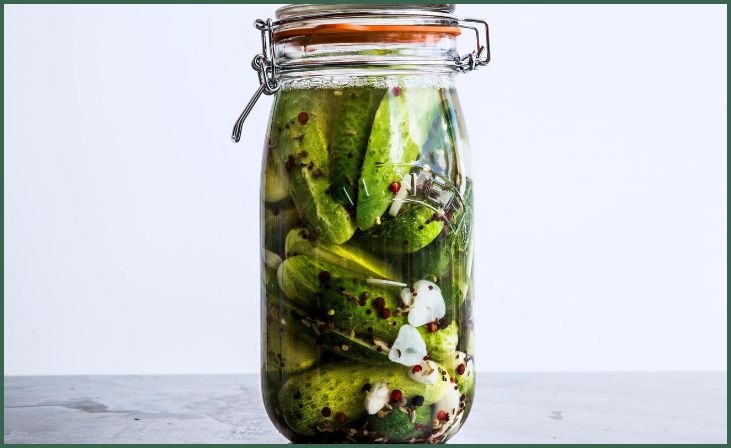
When it comes to making the perfect pickles, cucumbers take center stage. To ensure your pickles turn out crisp and flavorful, it’s crucial to select the right cucumbers. Here’s a breakdown of what you should consider:
Cucumber Variety:
Not all cucumbers are created equal, and for pickling, you want to choose varieties known for their consistent size and texture. Kirby or Persian cucumbers are excellent choices as they provide the ideal canvas for pickling.
Size Matters:
The size of your cucumbers is a critical factor. To achieve the best results, opt for cucumbers that fall within the 4-6 inches range. These sizes are perfect for pickling, ensuring that your pickles will fit nicely in the jar and absorb the flavors of the brine.
Embrace Freshness:
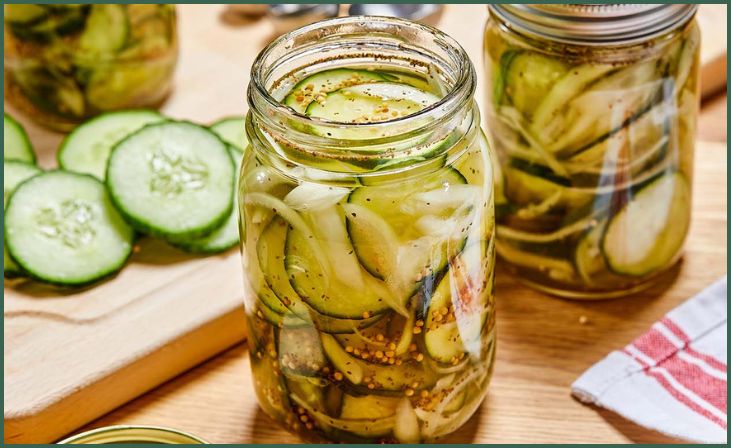
Freshness is paramount. To create the crispiest and most delicious pickles, make sure your cucumbers are as fresh as possible. If you have access to homegrown cucumbers or can source them locally, that’s even better. Fresh cucumbers provide a vibrant crunch that can’t be replicated.
Preparing Your Pickling Brine:
The brine, often referred to as the magical elixir, is what transforms ordinary cucumbers into tangy, savory pickles. Here’s a closer look at how to prepare this essential component:
Ingredients:
- 4 cups of water
- 2 cups of white vinegar
- 3 tablespoons of pickling salt
- 2 tablespoons of sugar
- Spices (such as dill, garlic, mustard seeds, etc.)
Mixing the Brine:
- Start by grabbing a saucepan and combining the water, vinegar, salt, and sugar. The balance of these ingredients is crucial to achieving the perfect pickle flavor.
- Place the saucepan on the stove and bring the mixture to a gentle boil. Stirring is essential during this process to ensure that the salt and sugar fully dissolve, infusing the brine with the right blend of flavors.
- This is where you can get creative by adding your choice of spices. Whether you prefer the classic dill and garlic or want to experiment with something bolder, this is the time to infuse your brine with your desired flavors. Be generous or subtle, depending on your taste preferences.
Preparing the Pickles:
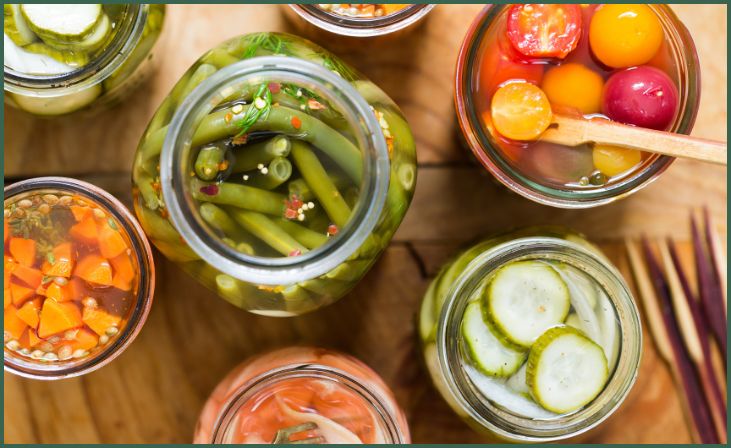
Before your cucumbers can take their place in the jars, a bit of preparation is necessary. Here’s what you should do:
Washing:
Begin by giving your cucumbers a thorough wash and a gentle scrub to remove any dirt or debris. Clean cucumbers make for pristine pickles.
Slicing or Leaving Whole:
The choice is yours, and it largely depends on your pickle preferences. You can leave the cucumbers whole for a classic look, or you can slice them into spears or rounds based on your preference. Sliced cucumbers tend to absorb the brine more quickly, resulting in pickles with intense flavor.
Don't just scroll, subscribe!
BuzzTrail's unique web-stories are the cure for boredom you've been waiting for.
Canning Without a Canner:
Now, the real adventure begins – preserving your pickles without the need for a dedicated canner. Here’s how to do it:
Sterilize Jars:
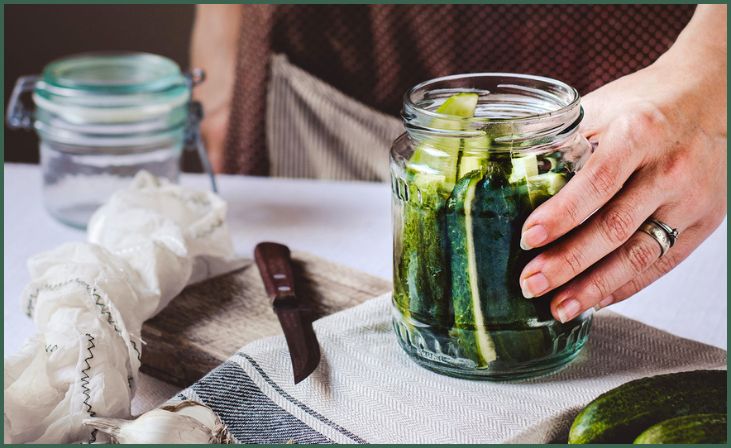
Your first step is to ensure that your canning jars and lids are impeccably clean. Wash them with hot, soapy water and then take the extra step of sterilizing them by immersing them in boiling water. This ensures that your pickles will remain uncontaminated during storage.
Fill Jars:
With your sterilized jars ready, it’s time to pack them with the prepared cucumbers. Place the cucumbers neatly in the jars, ensuring they are snug but not overly packed.
Pour the Brine:
The next step is to carefully pour the hot pickling brine over the cucumbers, leaving about half an inch of headspace at the top of the jar. This headspace allows room for expansion and helps prevent your jars from cracking during the canning process.
Seal the Jars:
Wipe the rims of the jars clean to remove any residue or brine that might interfere with the seal. Then, seal the jars with the sterilized lids and screw on the bands until they are comfortably secure but not overly tight. This ensures that air can escape during the canning process.
Safe Pickle Preservation:
Ensuring the safety of your pickles is a critical step. Follow these guidelines to guarantee your pickles are preserved safely:
Hot Water Bath:
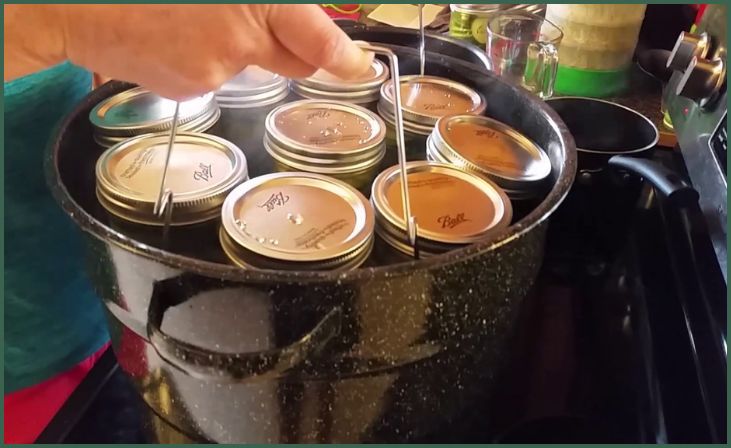
Place your filled jars in a large pot and cover them with water. The hot water bath is a key step in the canning process, as it creates a seal and helps to preserve your pickles.
Boiling Process:
Bring the water to a rolling boil and maintain it for about 10-15 minutes. This boiling process effectively seals the jars, creating an airtight environment that prevents spoilage.
Also Read:- Health Benefits Of Pickles You Never Thought Of
Cooling Stage:
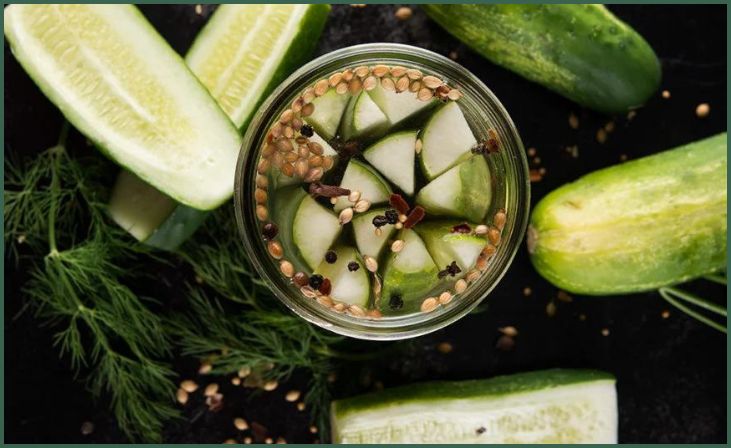
After the boiling process is complete, carefully remove the jars and let them cool at room temperature. This is the moment when you might hear the satisfying “pop” of the lids sealing. This sound is music to the ears of any pickle maker, as it signifies a successful preservation process.
Conclusion
Discovering the art of canning pickles without a canner unlocks a world of homemade culinary delights that are not only delicious but also incredibly satisfying to create. Whether you’re a seasoned pickle enthusiast with a well-stocked pantry of preserved goodies or a curious beginner eager to embark on this flavorful journey, this guide is your key to unlocking the enticing world of homemade pickles.
So, whether you’re a fan or just beginning your journey, this guide invites you to try it. Dive into the world of homemade Pickling and savor the satisfaction of your culinary creations. There’s no better feeling than sharing your homemade pickles with friends and family, watching their faces light up as they savor the unique, mouthwatering flavors you’ve brought to life.
Frequently Asked Questions (FAQs)
Are these pickles safe to eat without a canner?
Are these pickles safe to eat without a canner?
Yes, these pickles are safe to eat as long as you follow proper canning procedures, including sterilizing jars and processing them in a hot water bath.
How long can I store these canned pickles?
How long can I store these canned pickles?
Properly canned pickles can be stored for up to a year or even longer in a cool, dark place.

